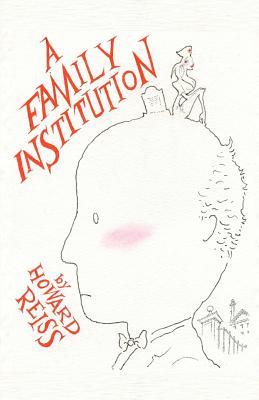“Nothing passed quicker than a life filled with routine.” So it is with Ira Portnoy in the 1980’s, a 41 year-old ad man living with his wife, Ellen, and their kids, Jaime and Scott.
Ira’s mom, Selma, and his aunt, Sarah still figure significantly in his life, one of routine piled upon routine. It would seem that Ira is content. Repeatedly referred to as a wimp, Ira’s inaction and lack of fury, when it seems warranted, certainly support that description.
Until one day Ira discovers that he had another aunt, Eva, who at age twelve was sent to an asylum by his recently deceased grandmother. Eva died there, and his mother and aunt had kept that secret from him all these years.
A Family Institutioncenters Ira’s quest to discover what happened to his Aunt Eva. In the process, Ira watches his perfectly organized life unravel. In order to find out what happened, Ira essentially takes leave from his family and job to accept a temporary position at Pilgrim State, where Eva was kept. There in the records department, where longtime employee Shirley, an especially well-drawn character, assists him with her memory, Eva’s mystery is solved and Ira is shocked by what he discovers. A good amount of information about historical approaches to dealing with mental illness in these hospitals is included and frightening to read
Meanwhile Ira meets Rhonda, who seduces him with what seems to be little effort. They travel to Atlantic City where Ira loses control at the tables, losing—to him—what seems to be a small fortune. Ira can’t stop himself and his old, ordered life begins to feel like a mirage.
Both the dialogue and the physical descriptions of characters ring with truth and Ira’s weakness–while sometimes difficult to fathom–does make the character seem more real.
In the end Ira returns to his job and family, knowing that he will have to work hard to repair the damage he’s caused. The very last passage is a strong indication he accepts, even loves the whole routine of his life. But there is no sense that a significant change has taken place in him. If there were an indication that he was seriously disenchanted at the beginning of the book, his subsequent dissolution might be more understandable, as would his ultimate acceptance of his old life again.
Reviewed by Joe Del Priore for IndieReader

